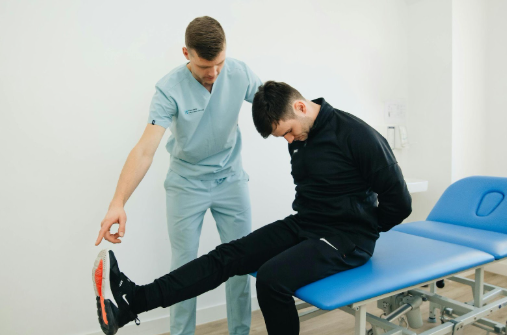A Guide to Facet Joint Injections: How They Work for Neck and Back Pain

Facet joint injections are a common treatment for people suffering from chronic neck and back pain. They can provide long-term relief by targeting the source of the pain. If you're considering facet joint injections, it's essential to understand what to expect from the treatment. Read on to learn more about this treatment option.
What are Facet Joint Injections?
Facet joints are small joints located between the vertebrae and are responsible for controlling the movement of your spine. These joints can cause severe pain and discomfort when inflamed or damaged due to arthritis, injury, or other medical conditions. Facet joint injections are minimally invasive, and a great way to treat facet joint pains. Doctors can also suggest facet joint injections to treat various spine-related conditions like arthritis, herniated discs, sciatica, and spinal stenosis. Compared to surgical procedures, Facet Joint Injections are less invasive, have fewer risks, and have a shorter recovery time.
How Do They Help Manage Pain?
Facet joint injections work by numbing the facet joints and reducing inflammation, which helps to alleviate the pain. Doctors may include steroids in the procedure depending on the patient's needs. When performed with steroids, it can help reduce inflammation and provide long-lasting relief.
Most people experience relief from their pain within 20-30 minutes after getting facet joint injections. This immediate pain relief is due to the anesthetic, which quickly numbs the area. If you experience significant pain relief for a long time after a facet joint injection, you could repeat the procedure as needed. However, consulting a good spine and pain specialist is vital to avoid potential complications.
What Can You Expect?
If you’re going to get a facet joint injection, you can rest assured that the procedure is relatively quick and easy. It is an outpatient procedure that generally takes less than 30 minutes. Since you will get local anesthesia, you may initially feel a slight pinch or some burning. Doctors will sterilize and numb the injection site, so you should not feel any pain during the procedure. While the procedure doesn't require sedation, doctors could sometimes give intravenous sedation through an IV.
After the injection, you may experience soreness around the injection site for a few days. You should avoid any strenuous activity or driving for the first 24 hours. In some cases, patients have noticed increased pain before the medication takes effect. Facet joint injections can provide relief for three months or longer. If your pain returns after a few months, you can repeat the injection up to 3 times yearly.
How Should You Prepare For The Procedure?
Before the procedure, patients need to take certain steps to ensure their safety and minimize the risk of complications. Here are some tips to help you prepare for a facet joint injection:
- Inform your doctor if there is a possibility that you are pregnant, as this will help the radiologist make the necessary adjustments during the CT scan.
- You should stop taking aspirin or blood thinner three days before the procedure, as they can increase the risk of bleeding. Additionally, doctors could instruct you not to eat or drink anything for eight hours before to reduce the risk of vomiting.
- Wearing loose clothing can help avoid putting unnecessary pressure on the injection site.
- You must also arrange transportation back home, as you should not drive after the injection.
- Inform your doctor about all medications you are taking, including herbal supplements. Be sure to mention any allergies, especially to local anesthetic, general anesthesia, or contrast materials containing iodine.
- Tell your doctor about any recent illnesses or medical conditions that may affect your ability to undergo the injection safely.
- Since you must remove metal objects like jewelry, eyeglasses, dentures, and hairpins before CT imaging, you could leave them at home.
You must consult your doctor before considering facet joint injections. They will evaluate your medical history and perform physical exams to determine if this procedure suits you. If you’re an Arkansas resident suffering from chronic back or neck pain, you can contact
Arkansas Spine and Pain. We have experience in providing comprehensive pain diagnostic and treatment services. Call (501) 227-0184 to learn more!



